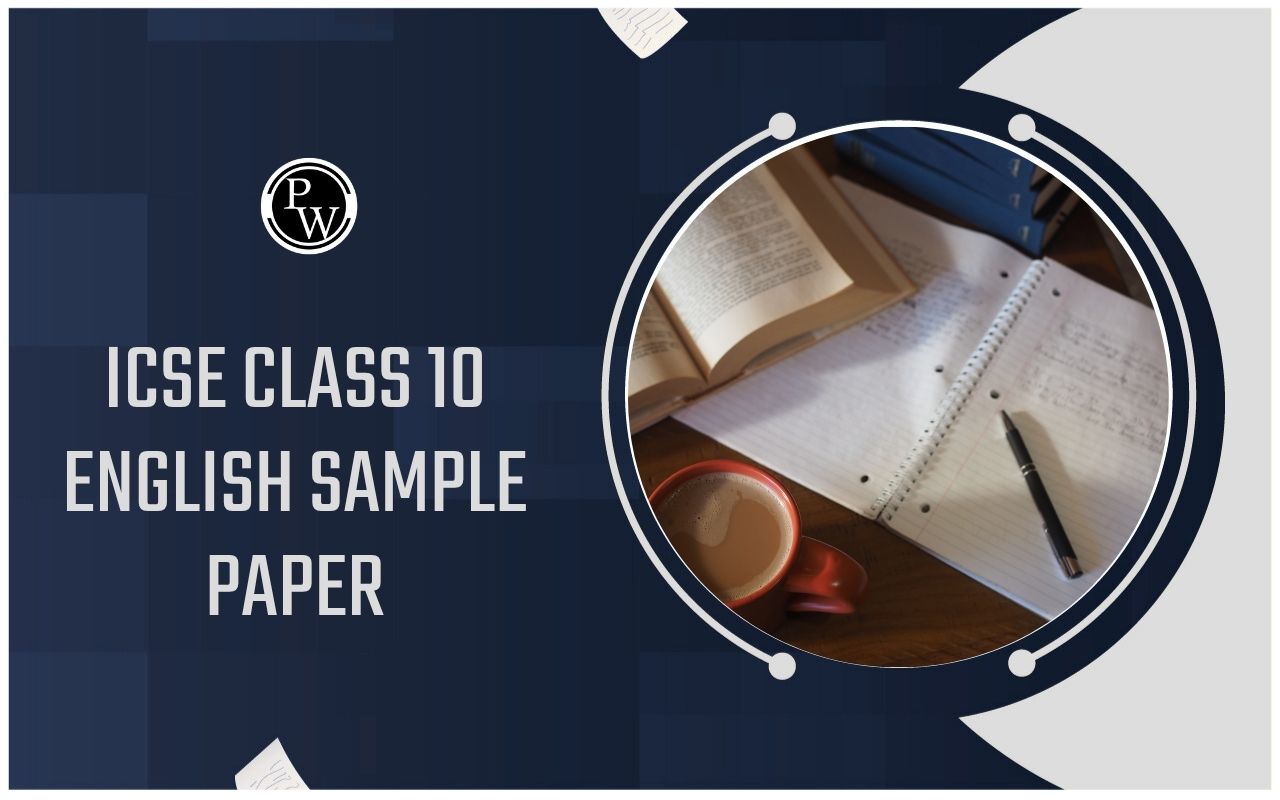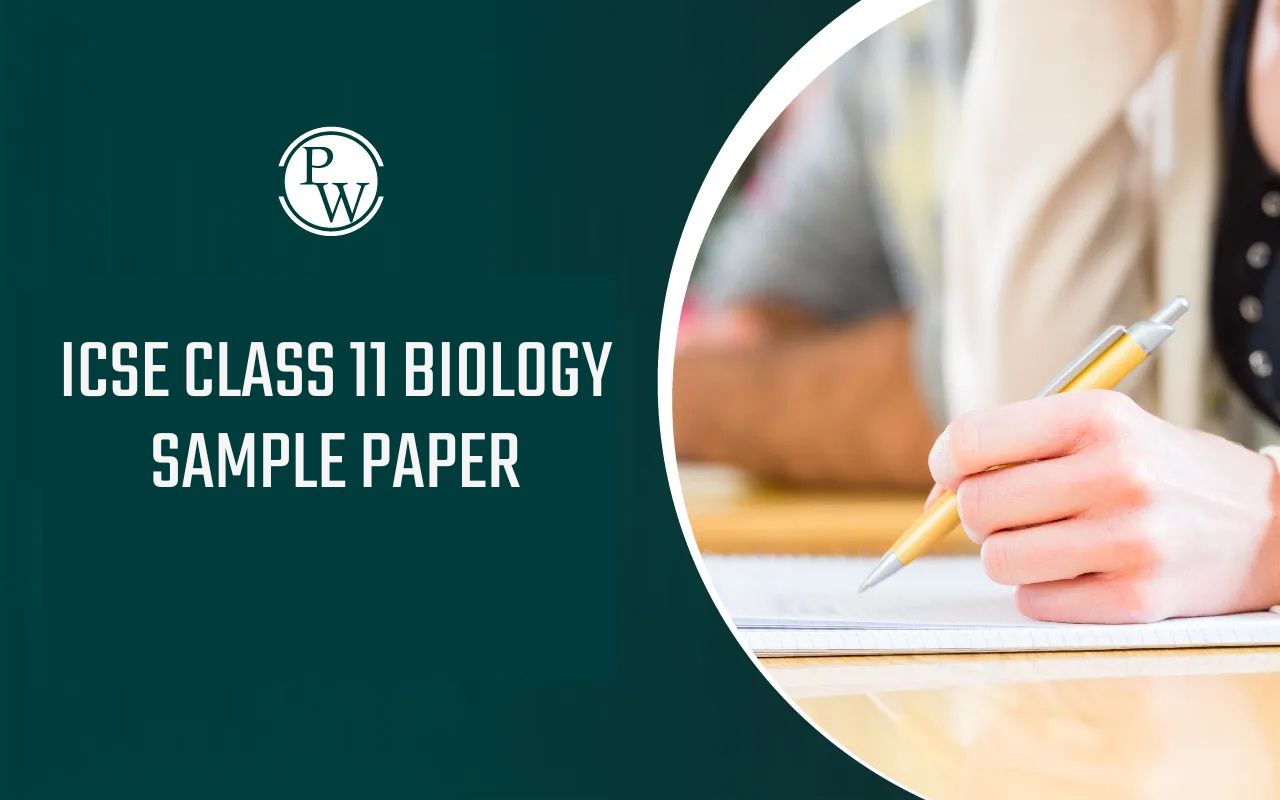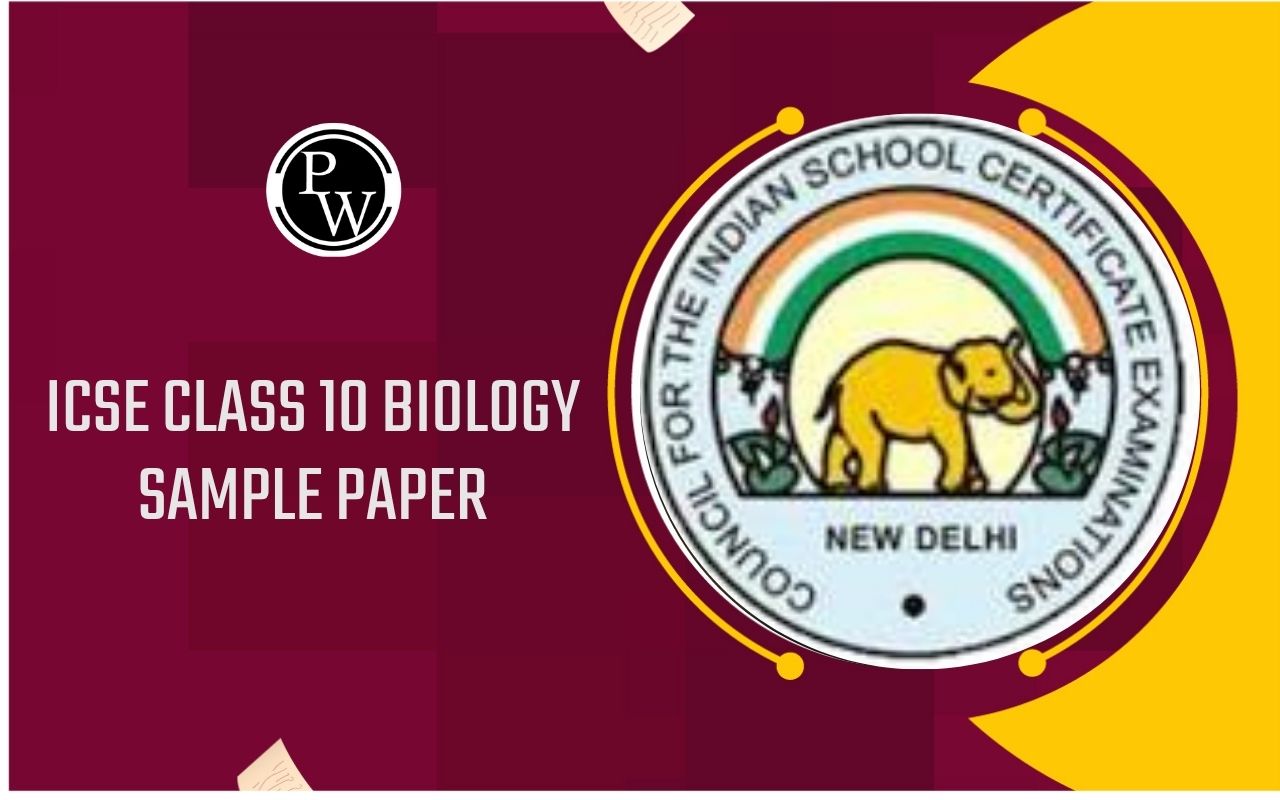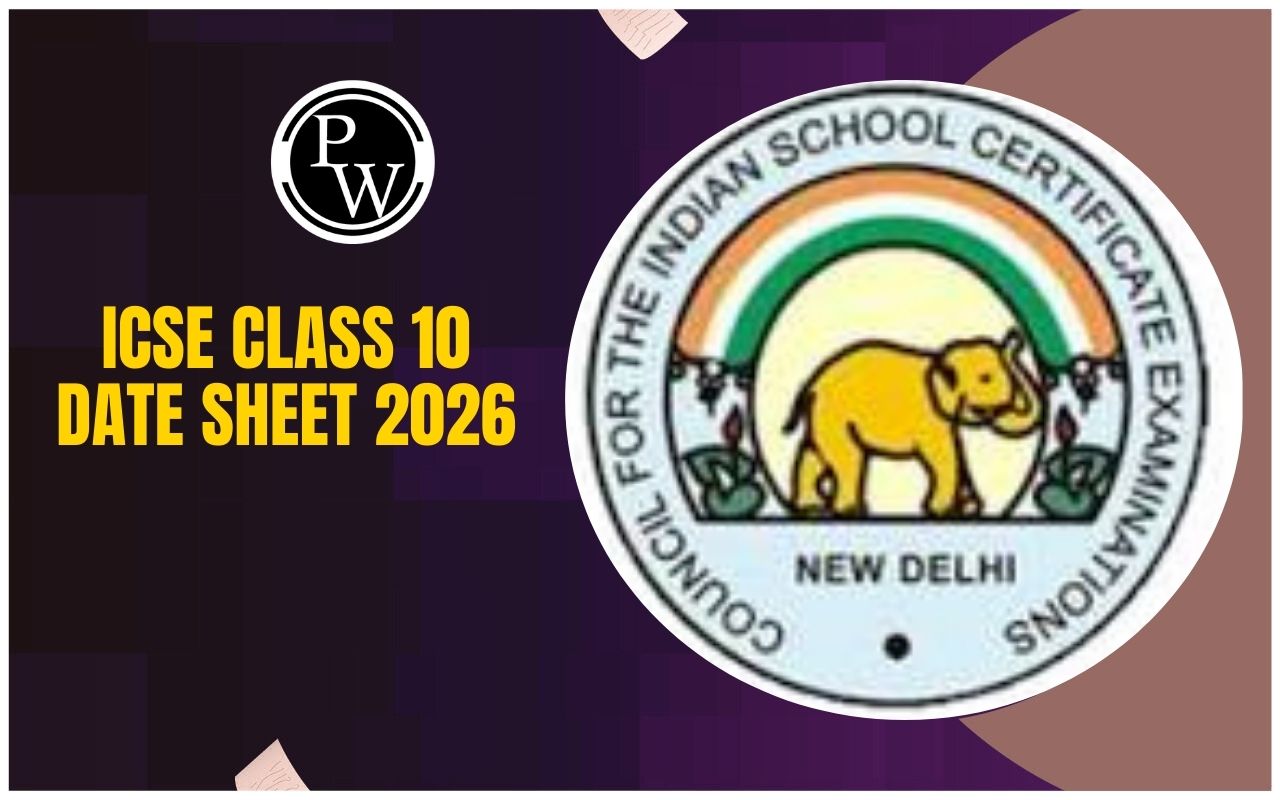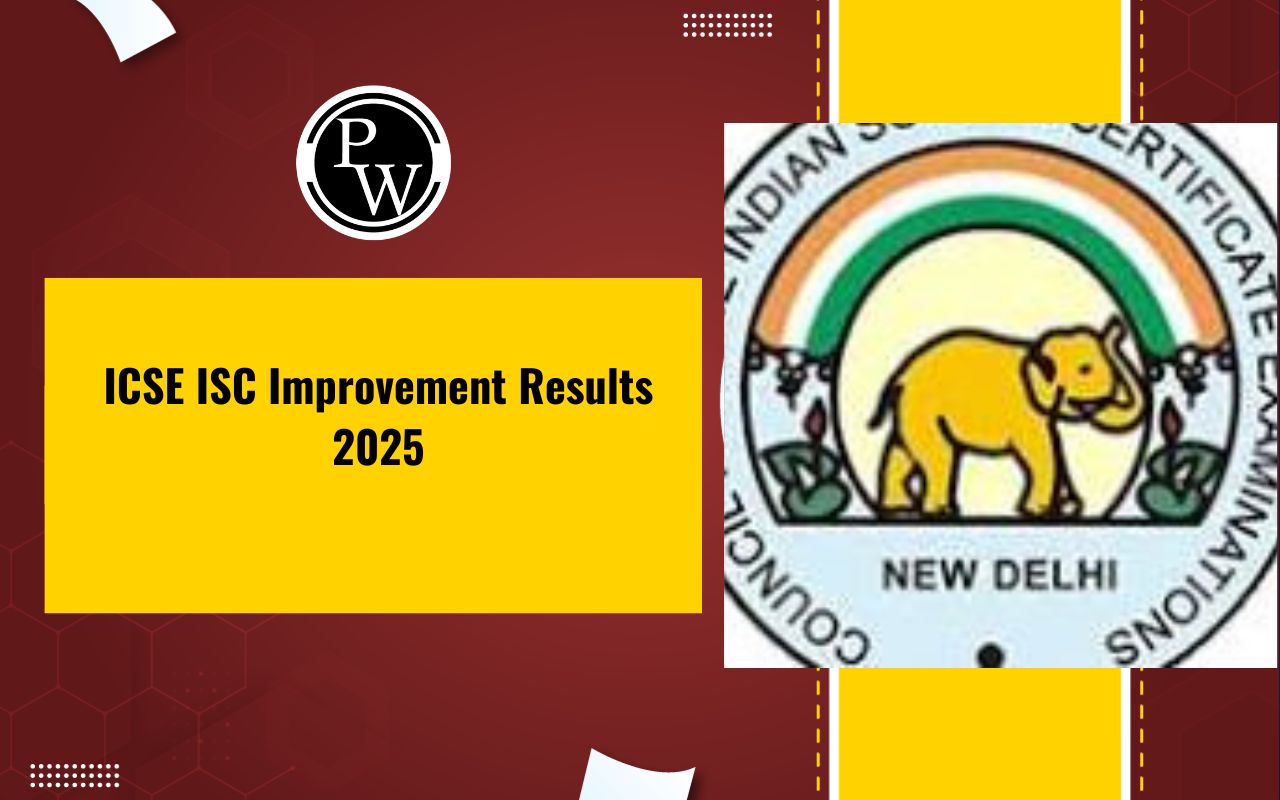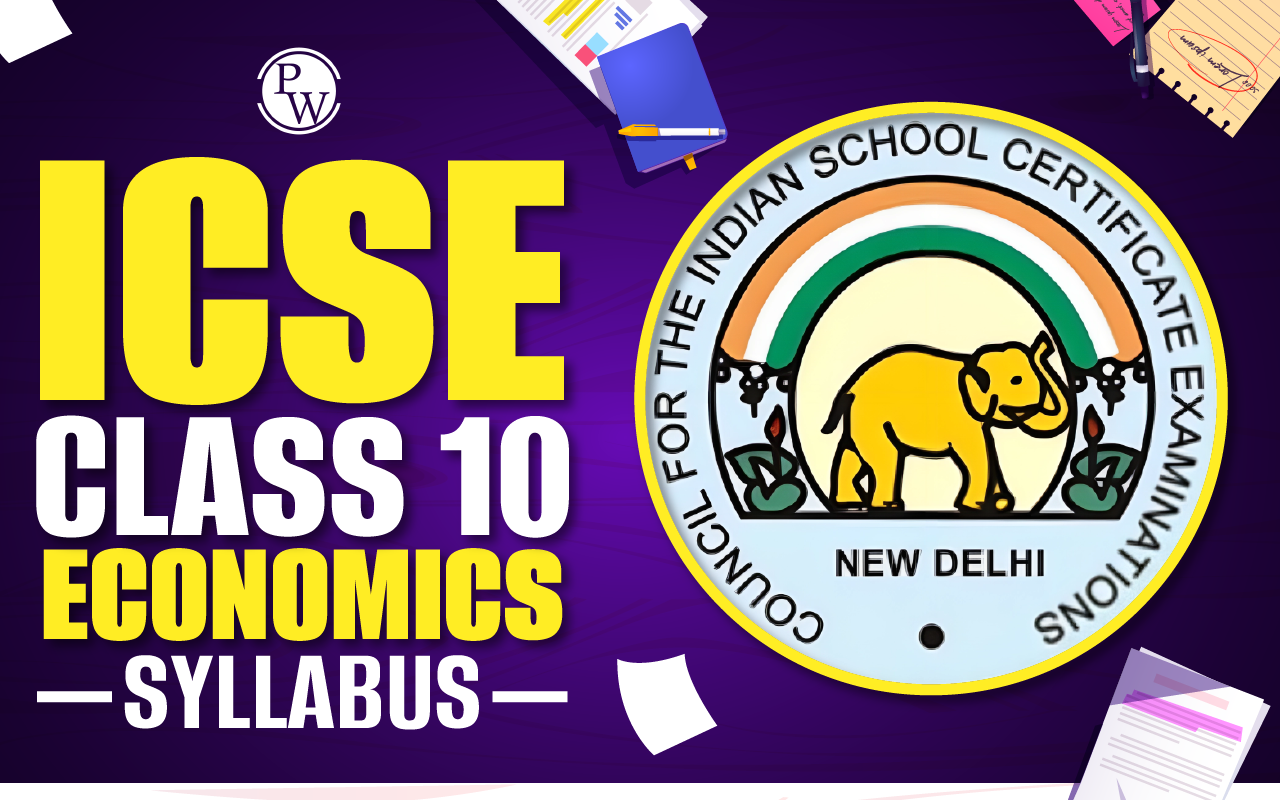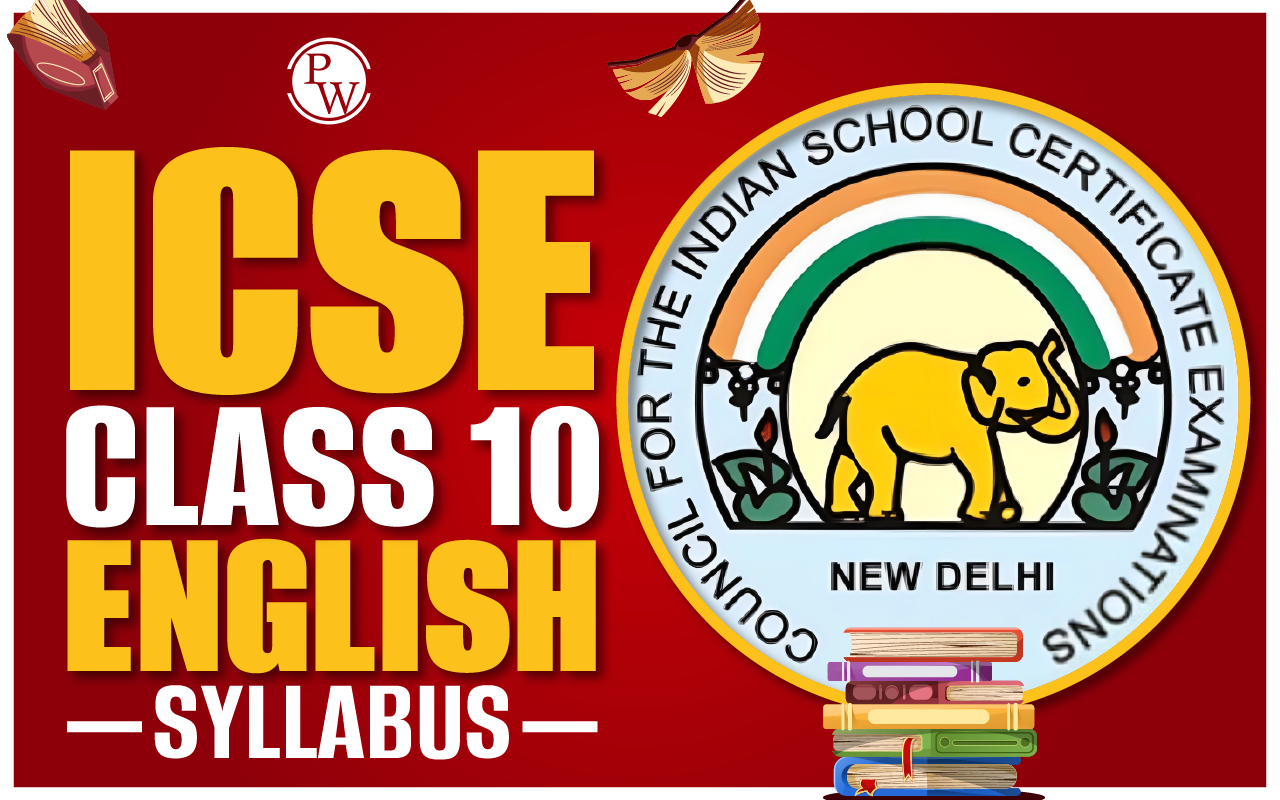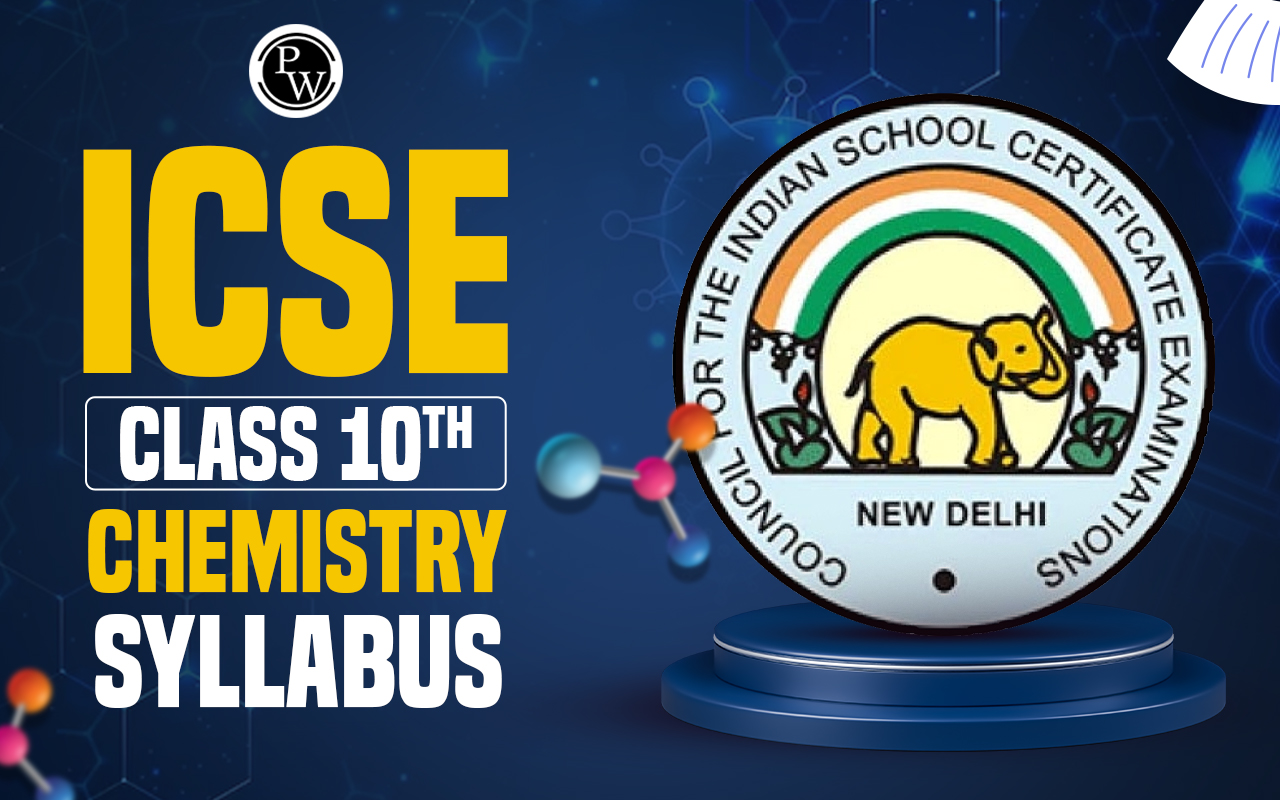
ICSE Class 10 English Syllabus: The ICSE Class 10 English Syllabus for 2025–26 includes two papers: English Language (Paper 1) and Literature in English (Paper 2). Paper 1 focuses on composition, letter writing, notice and email writing, unseen passages, and grammar.
Students must write essays, formal and informal letters, and respond to comprehension questions. Paper 2 covers Drama, Prose, and Poetry. Key texts include "Julius Caesar" by William Shakespeare, stories from the "Treasure Chest" anthology, and poems like "Haunted Houses" by H.W. Longfellow. Internal assessments evaluate listening and speaking skills. The exam pattern is consistent with previous years, and practicing previous year papers is advised for better preparation.
ICSE Class 10 English Syllabus 2025-26 Overview
The ICSE Class 10 English Syllabus 2025-26 comprises two papers: Paper 1 focuses on the English language, and Paper 2 covers English literature. Students can find the ICSE Class 10 English Syllabus 2025-26 with a detailed explanation of papers and topics on this page. Check the table below for more details:| ICSE Class 10 English Syllabus 2025-26 Overview | |
| Exam Name | ICSE Class 10 Board Examination |
| Board | Council for the Indian School Certificate Examinations (CISCE) |
| Official Website | https://cisce.org |
| Subject | English |
| Mode of Exam | Offline |
| Papers | Paper 1 and Paper 2 |
| Total Marks | 100 for each paper |
| Marks for Theory Paper 1 | 80 |
| Marks for Theory Paper 2 | 80 |
| Marks for Internal Assessment | 20 for each paper |
| Exam Duration for Paper 1 | 3 Hours |
| Exam Duration for Paper 2 | 2 Hours |
ICSE Class 10 English Syllabus 2025-26 Exam Pattern
For ICSE Class 10 English in 2025, the exam pattern is divided into two main papers:Paper 1: English Language
- Marks : 80
- Duration : 2 Hours
- This paper tests the student’s proficiency in the English language. It includes various questions such as comprehension passages, letter writing, article writing, speech writing, and editing tasks. The focus is on assessing the student’s ability to understand, analyze, and use the language effectively in different contexts.
Paper 2: Literature in English
- Marks : 80
- Duration : 2 Hours
- This paper focuses on literary skills and understanding. It includes questions from the prose, poetry, and drama sections of the prescribed texts. Students are required to answer questions that assess their comprehension, analysis, and interpretation of the texts. The questions may involve explanations, short answer questions, and essay-type questions.
ICSE Class 10 English Syllabus 2025-26 Aim
The ICSE Class 10 English Syllabus aims:- To enhance and combine the application of the four language abilities – listening, speaking, reading, and writing – to achieve effective communication.
- To gain a practical understanding of language grammar, structure, and expressions.
- To build the skill to read proficiently and retrieve information successfully.
- To cultivate an understanding and admiration for quality literature.
- To explore, through literature, the ideas and emotions of diverse global cultures.
ICSE Class 10 Economics Syllabus
ICSE Class 10 English Syllabus 2025-26 Paper-Wise Pattern
English is considered one of the simpler and more enjoyable subjects in the Class 10 curriculum. The ICSE (Class X) Examination paper will be based solely on the Class X portion of the syllabus. To score well in the Class 10 English exam, candidates should thoroughly study and revise all the topics in the ICSE Class 10 English Syllabus. The syllabus includes the following topics and subjects:Paper 1: English Language (2 Hours) 80 Marks
Question 1: Candidates must write a composition of approximately 300–350 words from a selection of topics. This aims to assess their skills in organising, describing, narrating, reporting, explaining, persuading, or arguing. The goal is to present ideas coherently, accurately, and precisely, compare and contrast ideas, draw conclusions, present relevant arguments, and use the correct style and format. Subjects may vary and could be suggested by language or other stimuli, such as pictures. They are chosen to allow candidates to draw on personal experience or stimulate their imagination. For one subject, suggestions about the content will be provided, but using them is optional, and candidates are free to approach the topic as they wish. Expectations include appropriate organisation of subject matter, syntax, punctuation, grammatical correctness, and spelling.Paper 2: Literature in English (2 Hours) 80 Marks
Candidates will need to answer questions based on the assigned textbooks, covering Drama, Prose (Short Stories), and Poetry. For Drama and Prose (Short Stories), the questions provided will closely relate to the text. Candidates must demonstrate their comprehension of the passage and express their interpretation of the given questions clearly, using their own words and keeping them pertinent to the text. Excerpts from the drama and prose texts may be provided, leading to questions about the particular book. Regarding Poetry, a poem or sections from poems will be presented, and questions will be formulated to assess the candidates' reaction to the poem. The questions will emphasise the content, understanding, and the personal response of candidates to the poem as a whole. check the table below for the detailed topics:- DRAMA: THE MERCHANT OF VENICE
| ICSE Class 10 English Syllabus Paper 2 | |
| 1. DRAMA: THE MERCHANT OF VENICE | (Shakespeare’s unabridged play by A.W. Verity – Acts 3, 4 & 5 TREASURE TROVE – A collection of ICSE Poems and Short Stories (Evergreen Publications) |
| POETRY | (i) Daffodils – William Wordsworth |
| (ii) I know why the Caged Bird Sings – Maya Angelou | |
| (iii) The Patriot – Robert Browning | |
| (iv) Abou Ben Adhem – Leigh Hunt | |
| (v) Nine Gold Medals – David Roth | |
| PROSE | (i) An Angel in Disguise– T.S. Arthur |
| (ii) The Little Match Girl – Hans Christian Andersen | |
| (iii) The Blue Bead – Norah Burke | |
| (iv) My Greatest Olympic Prize – Jesse Owens | |
| (v) All Summer in a Day – Ray Douglas Bradbury | |
ICSE Class 10 English Syllabus 2025-26 Internal Assessment
Schools will organise, conduct, and document assessments for candidates' Listening and Speaking Skills twice in a year in the following manner:
Pattern of Assessment a) Listening Skills The examiner reads a passage of around 300 words aloud twice, first at a regular speed (approximately 110 words per minute) and then at a slower pace. Candidates can take brief notes during the readings and then respond to an objective test based on the passage, using the provided paper. The recommended number of candidates in one sitting is 30. b) Speaking Skills Each candidate must deliver a two-minute oral presentation, followed by a three-minute discussion with the examiners on the subject. Presentation topics may involve narrating an experience, providing a description, giving directions on making or operating something, expressing an opinion, giving a report, sharing an anecdote, or commenting on a current event. While candidates can refer to brief notes during the presentation, excessive reliance on notes or reading will result in penalties. It is advisable to allocate one hour for candidates to prepare their presentation subjects, and they should be given a choice of topics on a common paper.Evaluation
The evaluation will be done collaboratively by the subject teacher and an external examiner, both responsible for assessing the candidate. The external examiner, chosen by the Head of the School, can be from the faculty but should not be teaching the specific subject in the corresponding section or class. For instance, a Class VIII English teacher might be selected as an external examiner for Class X. Award of Marks (20 Marks)- Listening Skills: 10 marks
- Speaking Skills: 10 marks
ICSE Class 10 English Syllabus 2025-26 PDF Direct Download Link
The ICSE Class 10 English Syllabus 2025-26 is now available for download on the CISCE website. Students preparing for the upcoming Class 10 board exam can download the ICSE Class 10 English Syllabus PDF and start their preparations accordingly. Below, we provide a direct link for students to download the ICSE Class 10 English Syllabus PDF for their convenience.
Do you need help with your homework or preparing for exams?
ICSE Class 10 English Syllabus
ICSE Class 10 English Syllabus 2025-26 Suggested Assignments
Assignments should be made based on the recommended textbooks along the following lines:- Analysing characters or themes;
- Examining socio-economic, cultural, and historical contexts;
- Summarising or paraphrasing content;
- Recognizing and appreciating literary qualities;
- Connecting with a character by placing oneself in their circumstances and explaining their actions;
- Envisaging alternative outcomes or endings in a literary work and considering their impact on all involved.
Evaluation
The assignments/projects will be assessed by both the subject teacher and an external evaluator. (The external evaluator can be a teacher chosen by the school's head, preferably from the faculty but not currently teaching the specific subject to the respective section/class. For instance, an English teacher from Class VIII may be designated as an external evaluator for Class X English projects.) Both the internal and external evaluators will assess the assignments independently.- Allocation of Marks (20 Marks)
- Internal Examiner (Subject Teacher): 10 marks
- External Examiner: 10 marks
The total score out of 20 should be submitted to the Council by the school's Head. The Head of the school is responsible for entering the marks online on the Council’s CAREERS portal by the specified deadline.
Preparation Tips for ICSE Class 10 English Syllabus
Here are some simple preparation tips for the ICSE Class 10 English Syllabus:
-
Understand the Syllabus: Familiarize yourself with both Paper 1 (English Language) and Paper 2 (Literature in English) topics.
-
Practice Writing: Write essays on various topics to improve composition skills and ensure they are within the word limit.
-
Focus on Grammar: Revise grammar rules regularly and practice exercises on sentence structure, punctuation, and error spotting.
-
Read and Analyze: Read the prescribed texts thoroughly (e.g., "Julius Caesar," "Treasure Chest," and selected poems). Understand the themes, characters, and important quotes.
-
Prepare for Unseen Passages: Practice reading comprehension and summarizing unseen passages to improve speed and accuracy.
-
Master Letter Writing: Practice both formal and informal letter writing, paying attention to the tone and format.
-
Work on Speaking and Listening: Regularly engage in discussions, and practice speaking clearly and confidently. This will help with internal assessments.
ICSE Class 10 English Syllabus 2025-26 FAQs
What are some tips for preparing for the ICSE Class 10 English exam?
Are there any tips for scoring well in the English exams?
What are the career options after ICSE Class 10 English?
Are there any recommended textbooks for ICSE Class 10 English?
What are the passing marks for ICSE Class 10 English?

